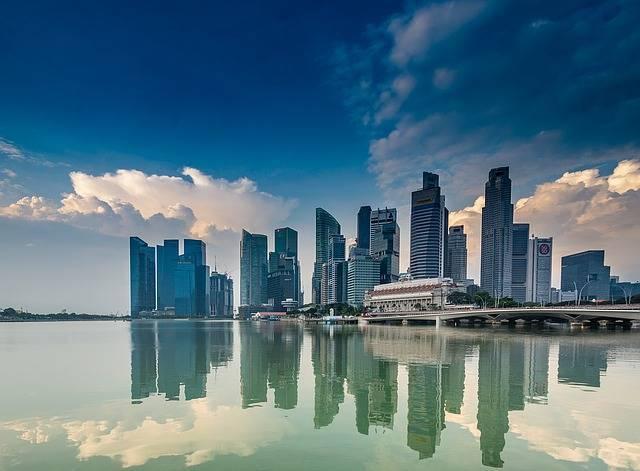
Southeast Asia's first carbon tax is in the works. Planned for Singapore, the tax would hit 40 to 50 large polluters and be the city-state's first concrete economic plan to reduce greenhouse gas emissions.
The carbon tax was a surprising tidbit in the Singapore government's most recent national budget. This is a big shift for the island nation, which just a few years ago stated publicly that a carbon tax was not on the table. What's changed, though, is greater awareness of the risks rising sea-levels pose to a nation surrounded by water, and the country's own commitments to the world during the 2015 Paris climate change conference.
“The proposed introduction of a carbon tax that will take effect in 2019 is a step in the right direction for Singapore,” Leonard Ong, tax partner at KPMG in Singapore, said in a statement.“With carbon emissions issues becoming of increasing concern, it is only right that Singapore, as a responsible global city, should take the lead in this region and aim to avoid an excessive carbon footprint.”
The carbon tax would include the countries three large refineries -- operated by companies like Royal Dutch Shell and ExxonMobil – along with other large polluters. And it will be introduced alongside a higher gasoline tax. This could impact the margins of these companies by a reported 10 to 15 percent.
“This brings home the reality that for businesses, climate change has a real impact on daily operations and can affect profitability and margins in the longer term,” Ian Hong, partner of sustainability advisory and assurance at KPMG, said in a statement. “Businesses need to innovate their processes, products and services to respond to the changing environment effectively.”
That means giving space for clean technologies to thrive. We've been subsidizing dirty fuels for decades – and we still are to the tune of $493 billion a year in what Bloomberg's editorial board called the “world's dumbest” policy. Existing policies promote fossil fuel use. A carbon tax merely shifts that incentive to disuse.
Singapore's carbon tax won't solve climate change – the nation, though wealthy, has a population of just over 5 million and is only responsible for 0.11 percent of global emissions. But the country is one of the world's richest by per-capita income, and if it shows that it can still compete and grow while tackling climate change, it will be a powerful signal to the world that growth and sustainability can be mutually reinforcing.
Moreover, Singapore is also a key member of the Association of Southeast Asian Nations (ASEAN), the European Union-like entity that coordinates trade, economic policy, and the flow of labor across an 800-million strong region. Singapore's carbon tax can be a model for neighboring nations, such as fast-growing Indonesia and oil-producing Malaysia, to move forward with their own climate mitigation plans.
If all goes to plan, Singapore -- historically known as a business-friendly city -- will also be known as an eco-business-friendly city.
Image credit: Mamella via Pixabay

Nithin Coca is a freelance journalist who focuses on environmental, social, and economic issues around the world, with specific expertise in Southeast Asia.














